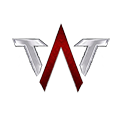
Continuing education expenses are generally deductible when they directly relate to your work. Showing appreciation to clients and employees is part of building strong relationships. These gifts can be tax-deductible when given to promote business activities. These fees can add up, so it’s important to track them as they’re eligible for deductions.
How Do Small Businesses Keep Track of Expenses?

In cash accounting, revenue is recorded when cash is received, and expenses are posted when cash is paid. Accrual accounting records revenue when earned and expenses when incurred, ignoring the movement of cash. We take care of all your bookkeeping for you, importing, reviewing, and categorizing your expenses every month. While you have flexibility in what you choose to spend money on, only expenses that meet these criteria will qualify as deductible business expenses. We’ve created this handy spreadsheet to best way to keep track of business expenses help you determine what expenses are and aren’t legitimate.
How to Track Expenses for Small Businesses: A Step-by-Step Guide With Expert Tips and Templates
By factoring in these considerations, it’ll be way easier to choose expense management software that aligns with your business needs and improves your finances. Protect your sensitive financial data with expense management software that prioritizes robust security measures. Look for features such as data encryption, secure cloud storage, and compliance with industry regulations like GDPR or HIPAA (depending on your business requirements). Seamless integration can help streamline data flow, eliminate manual data entry, and enhance overall efficiency.
Get a business bank account and credit card
To make it simple, you (and the rest of your growing team) can scan your receipts with your phone and load them into the mobile app as part of an expense report. Reconcile them at the end of the month, tracking any sales tax paid on your purchases so that amount comes off any sales tax you owe. Restaurants, hotels, and catering businesses face a wide range of industry-specific expenses. These include food and beverage inventory, kitchen appliances, and safety equipment, such as fire suppression systems. Employee uniforms, restaurant décor, and specialized software for reservations and point-of-sale (POS) transactions are also common expenses.
- Our intuitive software automates the busywork with powerful tools and features designed to help you simplify your financial management and make informed business decisions.
- You want to make sure your expense tracking system can grow with your business and take on extra users and workloads as and when needed.
- But the right expense tracker streamlines the process and helps you keep tabs on the financial state of your business.
- Enter your expenses into your accounting software regularly, such as daily or weekly.
- Efficient expense tracking for small businesses can make a big difference to your cash flow, profits, and even your workload, so it’s important to get it right.
- It keeps you organized and helps you determine your eligibility for certain tax deductions.If you do decide to go the paper route, here are a few tips to keep you organized.
Startup & business formation costs

The best accounting software comes with reporting tools that provide year-to-year comparisons of your business Insurance Accounting expenses. You won’t need to spend beyond your budget to get accurate records as there are several free accounting software platforms available for businesses. When you maintain separate bank accounts for your business and personal finances, you reduce the risk of accidentally mixing up transactions. Bank statements will also be separate for each account, saving you time separating your personal and business expenses.
Essential Business Expense Categories & How to Optimize It
That might seem obvious, but the difference can actually be blurrier than you might think, especially for small or single-person businesses. For example, a local restaurant might need categories for food inventory, while a tech consulting firm could have categories for cloud storage and software licenses. Starting a new business often requires upfront investments in research, legal services, and initial promotions. These startup costs can be deducted, helping to reduce initial tax liabilities. Staying up to date with industry trends or learning new skills can net sales improve your business operations.

I’ve worked in companies of all sizes and industries and owned different small businesses, and I can tell you expense tracking is never a waste of time, in any size business. When it comes to expense management, implementing a central, robust business expense tracking system is best, as it gives you access to valuable features like receipt scanning and digital storage. In closing, every business should have automated tools that alleviate speed bumps in order to create an agile, efficient expense management process. BILL Spend & Expense is the perfect example of what can happen when great software gets put to use.
- It helps you log and categorize your expenses so you’ve got all your information on hand for tax season.
- I picked Rydoo for assisted expense processing because it offers controller services, which are available as an add-on.
- Remember, though, that Expensify might be the best business expense tracker app for some businesses—but not necessarily all businesses.
- When you know what and how much you’re spending, you get a much better view of your business’s financial standing.
Step 4: Regularly Record and Categorize Expenses
This is a “period of time” report, meaning that this summary covers data over a designated range of time. This is one of the most important statements for businesses, so make sure you keep this up to date. As a small business owner, you’re constantly juggling multiple roles—from leading your brand to managing client relationships. Amid these responsibilities, becoming an expert in accounting might not be high on your list. Yet understanding the best way to track your business expenses is crucial. Everlance offers unlimited receipt uploads—even on its free plan—which could be a huge benefit if you deal with a lot of purchases.
- Cash-basis accounting is the practice of recording expenses when cash actually leaves your business, not when the expense is incurred.
- For example, taking clients out to lunch is an ordinary and accepted sales practice.
- Everlance offers unlimited receipt uploads—even on its free plan—which could be a huge benefit if you deal with a lot of purchases.
- Traditional methods like manual reimbursements and corporate credit cards often lead to overspending, delayed reporting, and compliance issues.
- Freelancers who primarily want to track expenses for billing clients will love FreshBooks because of its invoicing capabilities.
Organizing and categorizing your expenses is essential for keeping track of your business’s finances. If you are using accounting software, take advantage of its features to automatically categorize expenses. Most accounting software lets you connect your bank accounts and credit cards, so transactions are imported automatically. You can set up rules to categorize transactions based on keywords or vendors, which saves you time and ensures accurate reporting. Leveraging modern technology can significantly enhance expense management for small businesses.
